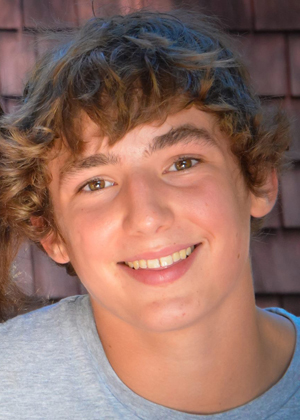In January of this year, we were very fortunate to have Beth Collins join our team after leaving a long and wonderful career as a hospital lactation consultant. She brings a wealth of clinical knowledge and a fresh perspective to our work and is already responsible for several great improvements in the way we do things. But most of all, she brings compassion and empathy to every patient encounter she has. She has become an inspiration in the lactation community, not only because of her skill as a RN/IBCLC, but because of her grace and strength while facing challenges that no mother should have to face.
Beth, and her husband Mark, are shining a light on mental illness through education and activism in their community and across the state of Rhode Island. They launched The Chris Collins Foundation in 2018 after their 20-year-old son Chris died by suicide after an almost 3-year battle with depression and anxiety. Chris was studying math and music at Amherst College in Massachusetts and was also a member of their baseball team. He loved learning and being outdoors. He was an avid musician who loved playing the guitar, piano, and ukulele as well as singing, writing and composing music. Chris was known most for his kindness, bright smile and deep love for family and friends. He was open about his mental health struggles, which began in his freshman year of college, and helped many of his friends with their own struggles. His ability to give so much of himself, even while struggling, inspired the creation of the foundation.
The Chris Collins Foundation raises awareness and advances education about mental illness, especially in schools, with a student-led Peer-to-Peer program. The program was created by the University of Michigan Depression Center in 2009 and is built on the premise that teens are more likely to listen to their friends than to well-meaning adults. The program works to raise awareness and eliminate the stigma of mental illness and increase the likelihood of early detection and help-seeking. A small group of students in each school are trained in September and then build an awareness campaign to spread their knowledge and understanding to others in the school. The peer-leaders serve as positive role models that help shape social norms and attitudes regarding mental illness in their schools and communities.
Many mental health problems, including depression, emerge during the middle and high school years. According to 2017 RI Youth Behavior Survey, 27 % of high school students reported sad feelings, 14 % considered suicide and 10.5 % attempted suicide. Additionally, 18% of middle school students seriously thought about attempting suicide, 11.6 % made a plan to attempt suicide and 6.5 % attempted suicide. The Peer-to-Peer program will have a positive effect on these troubling numbers. Data collected from participating schools show that students are:
• More confident in their ability to identify someone who is showing common signs of depression and to help them to access mental health support services
• More likely to seek help if they were experiencing symptoms of depression themselves
• Less likely to keep it a secret if a friend is thinking about suicide
• More comfortable discussing mental health issues with their peers
• Reported lower stigma in their school environment related to students with mental health challenges
The Foundation launched the P2P program in South Kingstown and Narragansett high schools this past school year. It has partnered with the University of Michigan Depression Center and the Rhode Island Student Assistant Services (RISAS) to bring the program to 8-10 more schools each year. Personnel from Brown University and the RI Department of Health are part of the program’s scientific advisory board.
Beth and Mark also sit on the Washington County Zero Suicide Leadership Board. The Zero Suicide Initiative, to be implemented over the next 5 years, is a collaboration of health care partners to address mental health needs in Washington County. South County Health, Yale New Haven Health/Westerly Hospital, Thundermist Health Center, Wood River Health Services, URI Health Services, WellOne Health Services, Block Island Health Services and Gateway Healthcare will establish systems to identify and assess suicide risk among all patients receiving care and provide referrals and follow up to ensure behavioral health patients receive the care they need.
Someone aged 25 or older dies of suicide every 3 days in RI. In addition, someone under the age of 25 dies every 20 days in RI. The Zero Suicide initiative is evidence based, has been used around the country and in 13 nations, and has been demonstrated to decrease the rates of suicide by significant amounts. The ultimate goal is zero suicides. Other hopes are that as routine depression screening becomes part of health care, medical staff and patients will become more confident and comfortable talking about mental health while eliminating the stigma surrounding the disease.
Beth is bringing her knowledge and experience with mental health issues to HBHM and is an excellent resource for our moms and new families. She has plans to update our mental health screening survey that is part of our patient medical history questionnaire, and to educate staff about perinatal mental health awareness. She will be starting a support group in the future for moms who are suffering from perinatal mental health adjustments and illnesses. We have been truly blessed to have her as a resource and advocate for our mothers. We are looking forward to implementing her ideas and supporting her and Mark in their very important mission. Anyone needing more information about this impactful work can email her at beth@healthybabieshappymoms.com.


